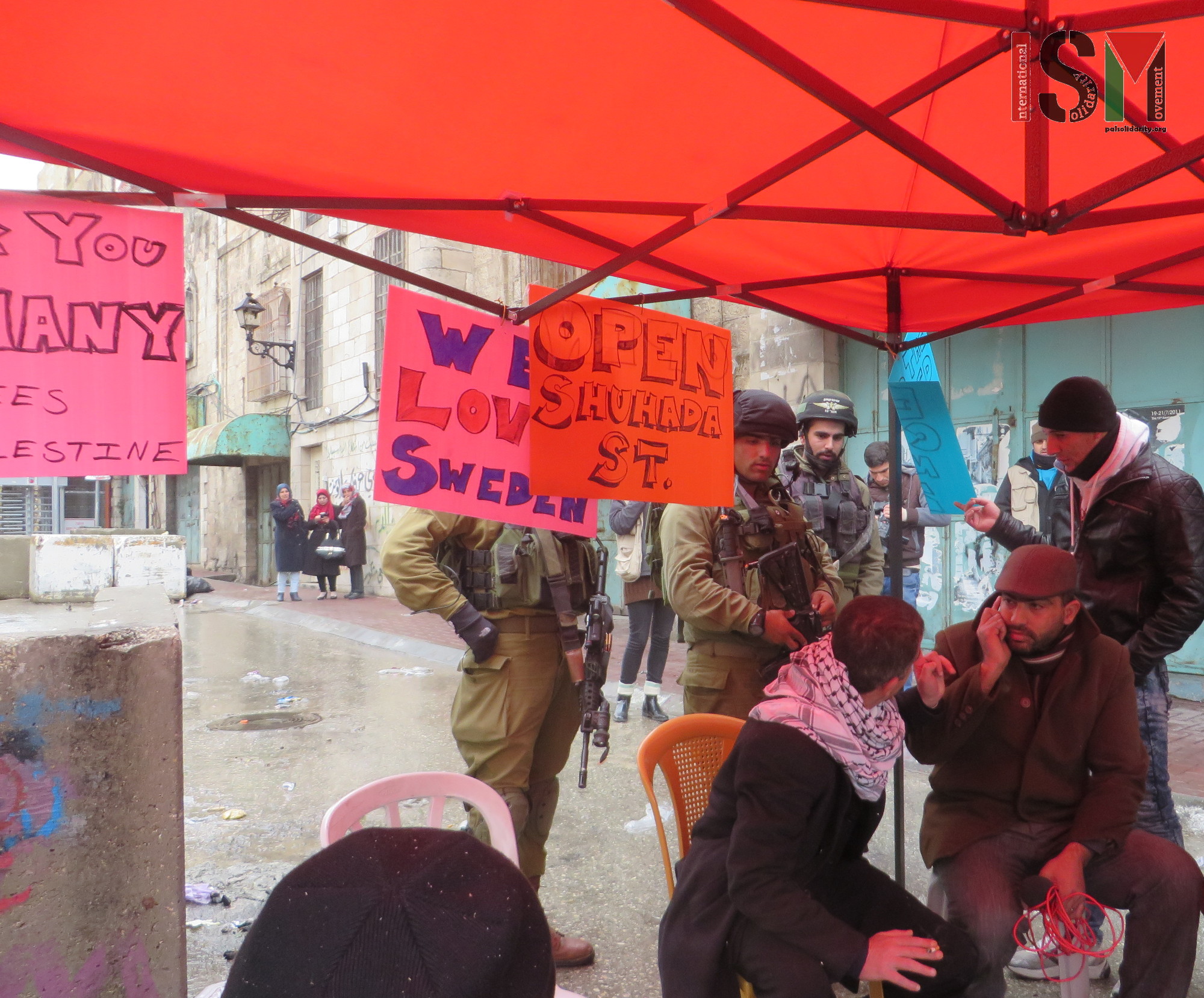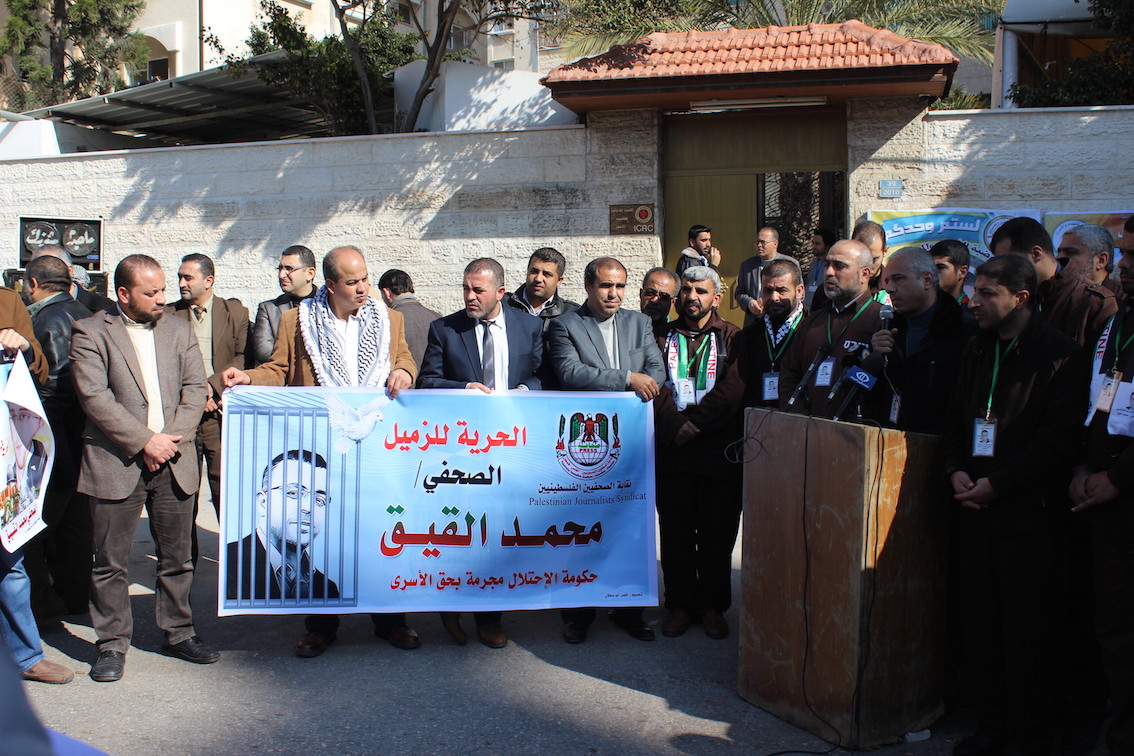Tag: Demonstration
-
Children living in closed military zone enjoy day of fun under the shadow of the occupation
13th February 2016 | International Solidarity Movement, al-Khalil team | Hebron, occupied Palestine On February 13th 2016 Youth Against Settlements in occupied al-Khalil (Hebron) organised a children’s activity in front of Shuhada Street checkpoint. Around 50 children from the neighbourhoods located on the H2 (entirely Israeli military-controlled) side of the checkpoint – Tel Rumeida and…
-
Demonstrators protest closed military zone under threat of Israeli violence
8th February 2016 | International Solidarity Movement, al-Khalil team | Hebron, occupied Palestine On 8th February 2016, Israeli forces threatened to attack a peaceful demonstration in front of Shuhada checkpoint in occupied al-Khalil (Hebron). Protesters gathered at noon to protest the continued closure of the Tel Rumeida neighbourhood, that on the 1st of November 2015…
-
Support for political prisoner, Mohamad AlQueeq, after more than 70 days of hunger strike
4th Feburary 2016 | International Solidarity Movement, Gaza Team | Gaza, occupied Palestine Yesterday there were several events in Gaza supporting the Palestinian political prisoner Mohamed AlQeeq, who is actually in the 72nd day of hunger strike and has lost his sight and hearing. Moataz Dalul, spokesman for the prisoners, stressed that “Mohamed AlQeeq is…



